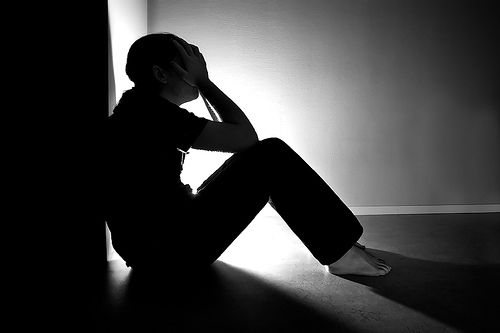

I recently came to some new conclusions about developing self-confidence, namely finding the confidence to make changes in one’s life (such as living a more meaningful life). They’re a bit unconventional (actually, they’re the exact opposite of how most people will tell you to develop confidence). I’ll share my epiphany with you first, and then tell you about a recent experience that got me there:
Many people say: first, try to build your self-confidence by convincing yourself to feel good (e.g. dress well, seek positive affirmations, etc.; and go try to change the world).
But I realized that never worked. No matter how “confident” I felt, I could never feel confident to do what I wanted to do.
I realized, then, that this approach was completely wrong.
The key to confidence is entirely about doing things the fact you’re scared stiff.
It’s acting when you don’t know how to act.
It’s trying even when you’ll probably fail.
It’s ignoring your low self-confidence, rather than trying to negotiate it away.
When you do this over and over again, you realize 3 things:
- Failure isn’t actually that bad.
- You will improve and get better.
- You feel awesome. ( you feel a sense of liberty)
What this means is that the old idea of trying to boost your self-confidence in order to feel daring enough to do something great or make a change is entirely incorrect. Act first; your confidence will increase soon after.
Here’s how I got there:
Last semester, I decided to start a radio show at my school discussing the local start-up and tech environment. I got the idea from my friends always telling me “you have a voice that would be great for radio!”
Mind you, I was an accounting student, so I hadn’t exactly been spending my years at school preparing to host a radio show. I always liked giving speeches, so I thought “maybe doing radio is a natural extension of that desire”.
I got a talk show gig by hounding the station news producer for two weeks (sorry Nick!). Finally, I got in touch, told him my idea, and to my complete, unfettered surprise: he let me have my show.
Such began Start Up with R.C. Thornton. The layout wasn’t exactly unmanageable: ½ hour, once a week. When my excitement of having my VERY…OWN…SHOW!! began to subside, I realized something: uuuh…I actually have no idea what I’m doing.
Sure, radio is part talking; that’s the part that’s most visible to the audience. But the more I thought about it, I realized I had no idea:
- How to write or format a radio show
- How to know what to say at the right time (you can’t script the whole thing)
- What kind of guests (if any) should come on the show
- What I should ask them; how I should act towards them
- Should I be funny, serious, goofy, stoic, crazy?
My boyish infatuation with having a second in the spotlight had subsided. I now appreciated the ineffable conundrum I had naively gotten myself into.
At one point, I thought about giving up before I tried. I couldn’t shake the feeling that my first recording would be a dismal failure. Through my tumultuous frustration, an interesting idea popped into my mind:
“Who cares if it’s bad? Just try anyway. I’ll bet you’ll screw up a few times, keep working at it; then you’ll do great”.
Ignore my insecurities? Try anyway? I guess I’ll try that; after all, I really had no other option.
I showed up to my first recording. I felt so nervous. I had spent the entire day before writing up a show format (I had no idea what I was doing, so I just made some stuff up). I had two guests calling in, and even still, standing in the lobby of the recording studio, I really had no idea what I was going to ask them.
The producer called me in (he looked calm; I tried to). We walked into this room with big, expensive-looking microphones and a sizeable mixer panel. He showed me how to talk into the microphone and a few other clerical-type pointers.
Then he turns to me, and asks:
“Are you ready?”
My answer? “You bet.” What I was actually thinking? “No way”.
The show started. The opening music faded in. The producer pointed at me. That was my cue. I started:
“Good morning ASU, welcome to the show! This is Start Up, with your host, R.C. Thornton. In tech start-up news today, Crowdtwist.com raised $6 million in Series A funding from a large pool of investors. Crowdtwist’s appeal is that it provides an engagement tool that reaches customers across a number of platform, including e-mail and Facebook”.
And then? Nothing.
I completely froze.
I stared at my notes. Then the microphone. Then my producer. I shrugged and was beyond the ability to speak. I still had about 24 minutes of my 30 minute show left.
The rest of the show went pretty much like this. My guests called: my interview questions were terrible, and elicited nothing interesting from them. I talked like a stick: boring, frightened, unengaged…
The recording ended. I took off my headphones. I was sweating more than I had since I ran cross country in high school. I asked, with disappointment: “how did I do?”
“You did all right”, he said.
We spent the next half-hour going over all the things I did wrong: I cut the guests off; I asked the wrong kind of questions; I wasn’t able to be flexible (I tried to read everything from my notes); I sounded too much like an infomercial; I didn’t offer a lot of useful insight, and instead just repeated things from the news.
Some of this feedback stung: I thought I was a better public speaker than this!
This went on for 8 more sessions: I’d prepare my show, tape it, and get feedback from the producer. I tried something new with my show for each episode, notably with different types and configuration of guests.
Let’s fast-forward to the last show I did. How was it different?
- I was really funny!
- I had excellent insight about the topics discussed; I offered an extensive analysis in addition to presenting news of current entrepreneurial events.
- I flowed naturally. My jokes were situational and interesting.
Basically, I was a baller. I was a great radio host. I got compliments right and left, and my producer readily admitted I had improved immensely. My classmates slowly figured out about my show, and were impressed! Not only has my radio persona improved, my general public speaking, writing, and informal communication abilities have skyrocketed.
All of this because I tried to host a radio show, despite that I at first had next to no confidence in my abilities to do a good job. I ignored fear, and it paid off in spades.
I could’ve tried to boost my confidence the old-fashioned way. I could’ve said “R.C., don’t worry man, you’ll do great!”. I could’ve worn my 3-piece suit to the studio. I could’ve tried to look cool or talk a cool game. I could have “waited” until I felt enough confidence, like so many people try to do.
But none of that would have prepared me for my first 30 minute radio show. If I had relied on requiring a perfectly sound sense of self-confidence prior to going on air, I never would have. Start Up with R.C. Thornton never would have been.
And that’s the lesson I want you to walk away with:
The only way to build your self-confidence is to do something you do not feel comfortable doing.
Doing this makes you used to—and perhaps will make you prefer—being outside of your comfort zone.
This also means that the way to build self-confidence is trying to talk yourself or tricking yourself into feeling good before trying to do something.
What makes you lack self-confidence? Do you think you would be bad at living your life the way you wanted, or making a crucial change in your life? Rather than talking yourself into thinking you can make the change, may I recommend ignoring your fear, and trying to make it work anyway?
I think it will make a huge difference.










